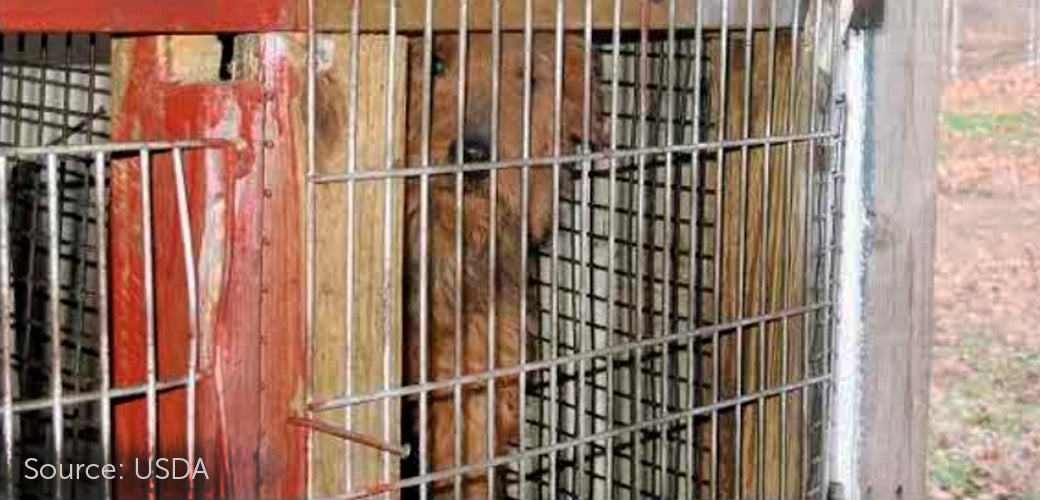
USDA Enforcement of Animal Welfare Act Continues to Plummet

Recent information, published as part of the U.S. Department of Agriculture’s (USDA) budget request for Fiscal Year 2021, reveals a steep decline in actions taken against commercial breeders (a.k.a., puppy mills) in 2019.
Last spring, we addressed the USDA’s nosedive of animal welfare enforcement actions over Fiscal Year 2018. The latest information shows that enforcement dropped even further in 2019, meaning fewer animal businesses—including puppy mills, zoos and research institutions—received any penalty for failing to meet federal standards of care.
The USDA oversees more than 12,000 facilities, and in 2019 the agency conducted over 9,000 inspections. The inspection process is intended to ensure that licensees comply with minimal Animal Welfare Act (AWA) standards. When breeders violate these standards, the USDA is responsible for initiating enforcement actions against the licensee. The agency can issue a penalty, seek to revoke or suspend a license or even refer the case for criminal prosecution.
Yet in 2019, the agency opened only 17 new enforcement cases—a decline of 93% compared to 2016. Even low-level actions like formal warnings were issued sparingly; in 2016, the agency issued almost 200 warnings, but in 2019, it issued only two.
Based on these numbers, when an inspector finds a violation—including animals in need of veterinary care, cages that are too small, or a lack of clean water or food—the agency most often chooses to take no action at all. It is abundantly clear that the USDA is failing its duty to protect vulnerable animals from harm.
But while the government might choose to allow businesses that violate the law to go unpunished, we can fight back by helping to stop businesses from profiting from cruelty. States, counties and cities have passed laws to prevent commercial (USDA-licensed) breeders and brokers from supplying puppies to local retail pet stores.
Don’t live in New York? Please join the ASPCA Advocacy Brigade to be alerted when we need you to speak up for vulnerable animals in your state and across the country.

